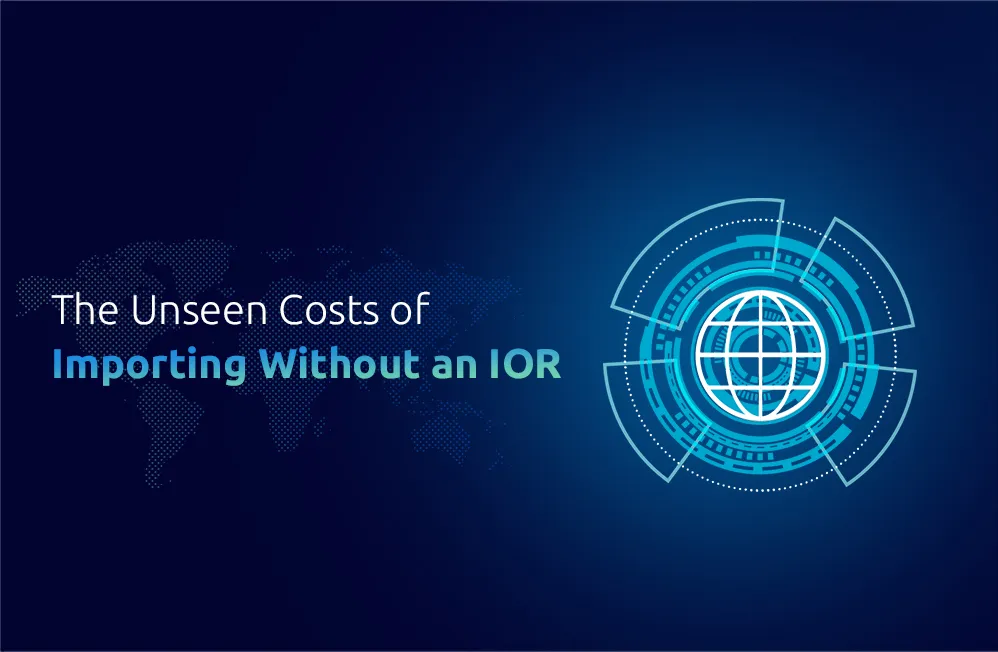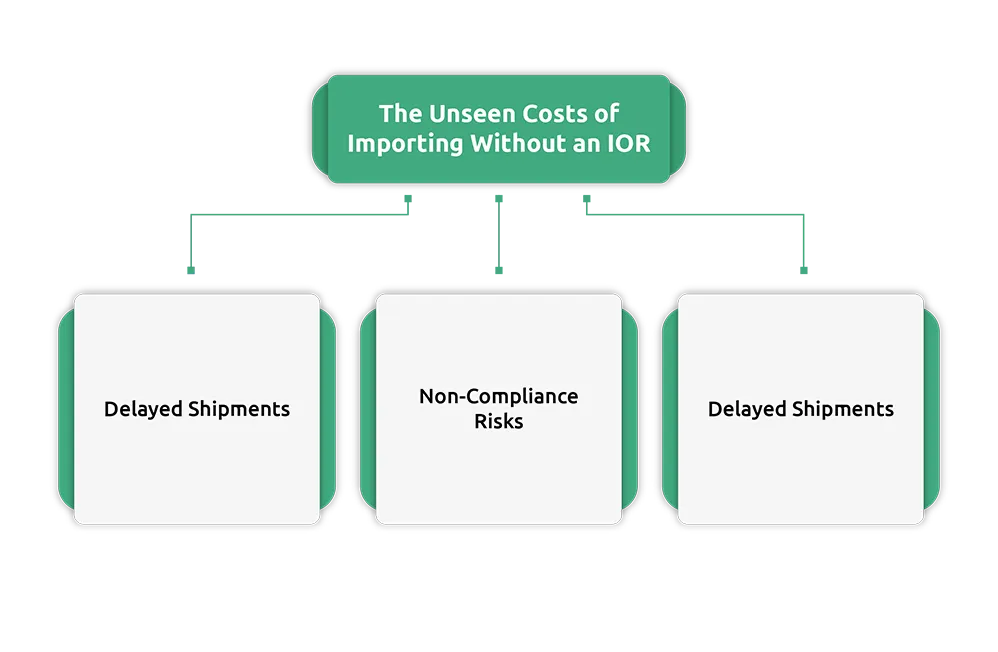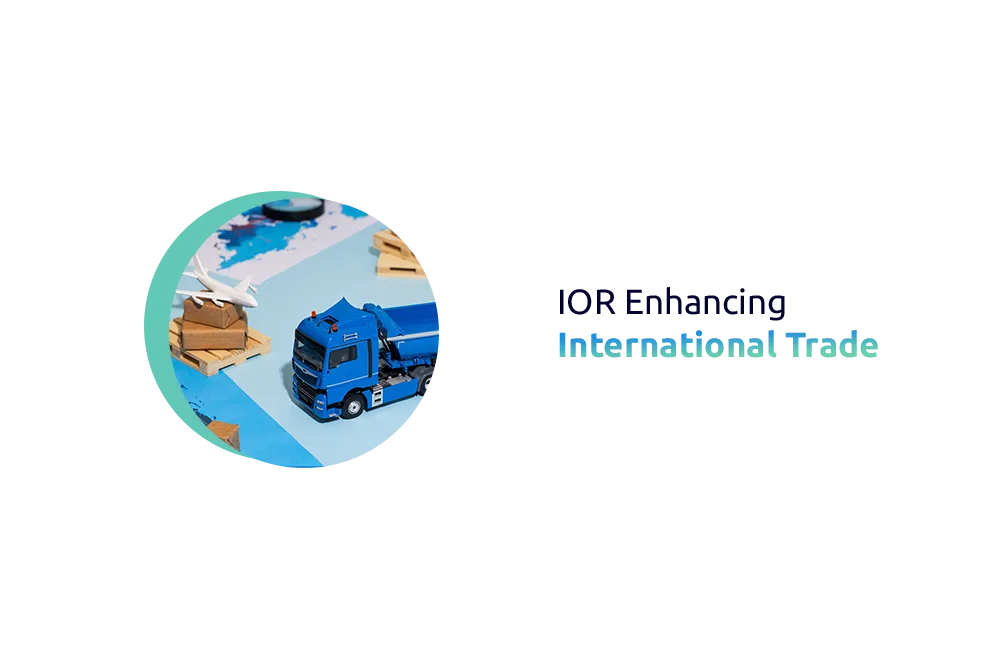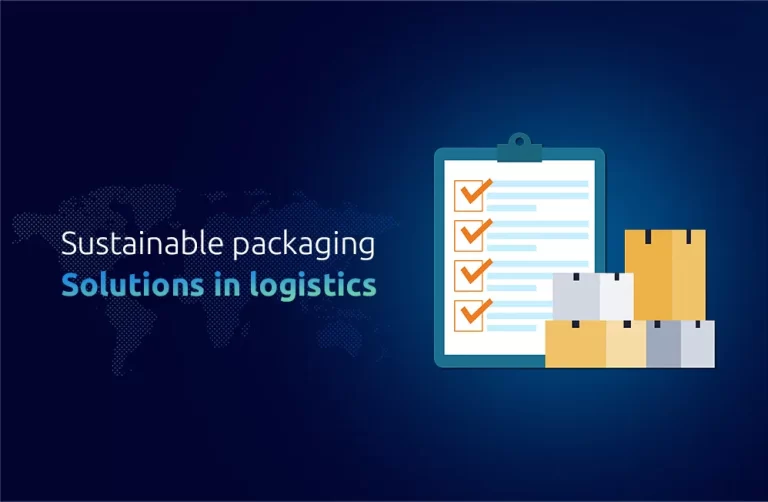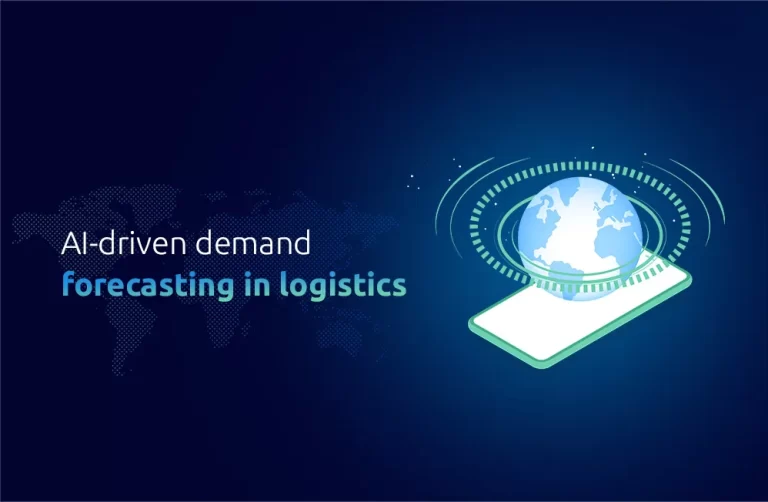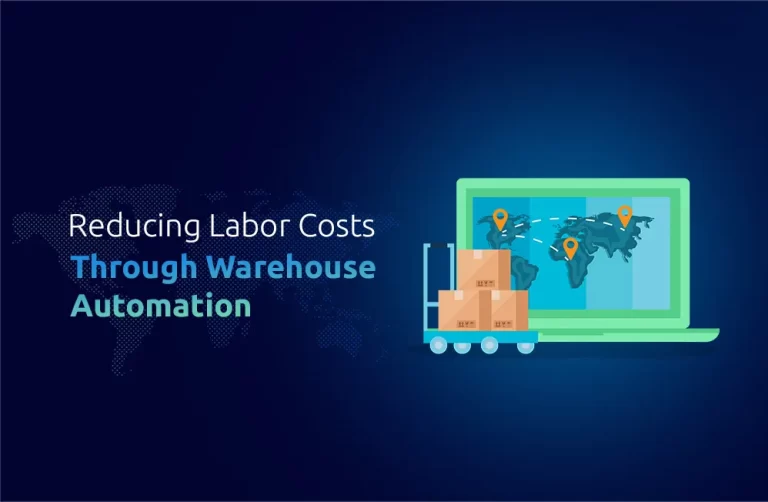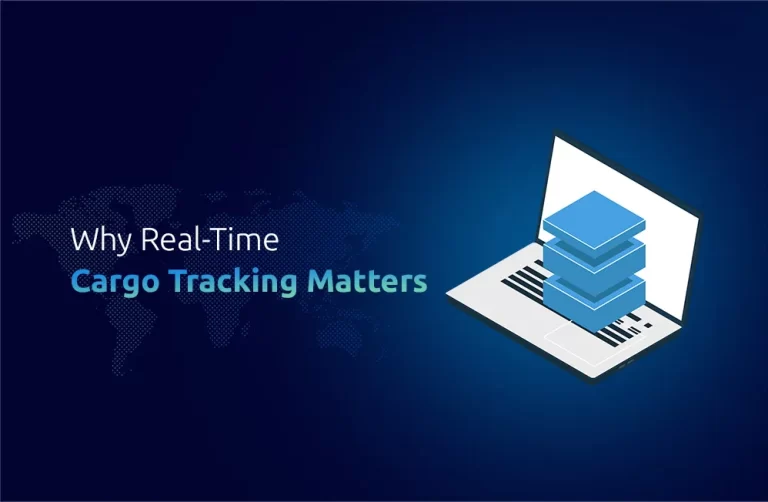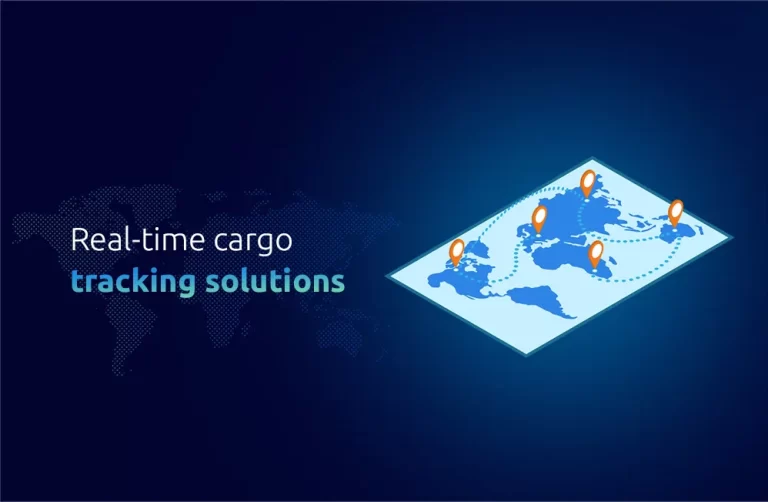Insight
Every situation includes concealed fees regardless of whether someone runs a business, operates as a logistics manager, or works in international trade. Global trade presents one of the greatest yet least anticipated obstacles in the form of non-compliance expenses.
Global companies often underestimate the complexities of international shipments when they neglect Importer of Record (IOR) obligations, resulting in unexpected financial consequences, delayed deliveries, and legal problems.
Organizations that operate without an Importer of Record (IOR) deal with customs obligations, taxation, and logistics problems that impair their supply chain operations. The article investigates unknown expenses which arise from importing products without IOR while explaining why businesses must establish proactive measures against such consequences.
Why is an IOR Necessary in International Trade?
As a legally bound entity, an importer of record ensures that all imported goods obey the destination country’s customs rules. An Importer of Record takes charge of customs procedures while paying duties on behalf of the importer, plus maintaining legal trade compliance. The absence of an Importer of Record leads companies to encounter unforeseen storage costs, suffer penalties for faulty documentation, and face compliance violations that result in financial penalties. Importing goods from foreign entities cannot be achieved directly in certain countries since an IOR is essential for businesses without local representation.
When engaging in global trade, it’s crucial to understand that IOR fees and IOR service fees are necessary components of confirming smooth customs clearance, mainly when the recipient is not the Importer of Record buyer. In such cases, a designated Importer of Record takes on full legal responsibility for meeting customs problems, paying import duties, and handling documentation. Without this arrangement, businesses face possible delays, fines, and storage charges due to improper import agreements. Utilizing a professional IOR helps mitigate these risks by simplifying the import process and preventing costly non-approval issues.
Understanding the Legal Requirements for IORs
Understanding the legal requirements for an Importer of Record is crucial for ensuring smooth international trade operations. While trade laws differ across countries, some fundamental responsibilities remain the same. An IOR must handle the payment of tariffs, duties, & taxes in agreement with the destination country’s import laws, ensuring compliance with local regulations and accurate HS Code classifications.
IORs must provide accurate documentation to customs, which prevents delays from occurring and resultant storage fees or penalties. All import-related responsibilities belong to an IOR because it is a legally responsible entity that enables smooth customs clearance without hassle. The delay or failure of the importer to fulfil export/duty requirements causes authorities to hold shipments at ports, which results in financial damage alongside supply chain disturbances.
The Hidden Costs of Importing Without an IOR
1. Storage Fees
Massive storage fees will accumulate when your products stay at ports, warehousing facilities, or airports because of unattended documentation or delayed duty payments. Most port facilities allow brief storage periods between 3 and 5 days before fees will be applied for warehousing goods. Reasons for such delays include:
– Missing or incorrect documents.
-Unpaid duties or incoterm DDP (Delivery Duty Paid) miscalculations.
-Customs clearance delays due to import restrictions.
How to Avoid It: Ensuring all paperwork is accurate before shipping and using an IOR can help prevent unexpected storage fees. Using bonded warehouses to store goods through customs delays can be profitable when collaborating with a customs broker.
2. Unexpected Duties and Taxes
Customs authorities impose import duties based on the HS Code classification of the goods. If the importer incorrectly classifies an item or fails to meet regulatory requirements, they may face higher duties, penalties, or even confiscation of goods.
How to Avoid It: A foreign Importer of Record (IOR) understands the import meaning and regulations associated with tariff classifications, ensuring proper duty calculations before shipment.
3. Shipping Less Than Container Load (LCL) Costs
Small-scale goods sent by LCL shipping face higher risks of delays and inspections because multiple shipments load one container together. Spanish Customs can delay all cargo inside a shared container whenever one consignment triggers an inspection process, thus raising warehousing expenses.
How to Avoid It: Opt for Full Container Load (FCL) shipping to minimize risks associated with customs holds and additional warehousing fees.
4. Customs Exams and Inspection Fees
Random customs exams can lead to additional fees, which the importer is responsible for paying. Goods may be inspected for various reasons, such as:
* Shipments originating from high-risk countries.
* Incomplete or inaccurate paperwork.
* Suspicious activity within the supply chain.
* Importing restricted goods.
How to Avoid It: While customs exams are sometimes unavoidable, businesses can reduce their chances of being flagged by ensuring complete and accurate documentation and working with a reputable Importer of Record IOR.
5. Port Fees and Terminal Handling Charges
Port authorities charge fees for handling shipments, particularly if the goods are not cleared on time. These fees vary by country and can be substantial for large shipments.
How to Avoid It: Properly coordinating warehouse logistics and supply chain management can help businesses avoid unnecessary port fees by ensuring shipments move efficiently through customs.
6. Damaged Goods and Insurance Claims
Goods held at customs or improperly handled during transit may suffer damage. Without an IOR, businesses face challenges in securing compensation for damaged shipments.
How to Avoid It: Working with an IOR ensures that all goods are properly documented and insured, minimizing the financial risk of damaged goods.
7. Customs Fraud and Penalties
Avoiding customs duties through improper goods classification or undervalued shipment reporting will result in heavy fines & possible criminal prosecution. Governments actively follow trade compliance through monitoring activities, and their failure to comply may cause block-listing, increased penalties, and potential legal consequences.
How to Avoid It: The solution lies in working with an experienced Importer of Record (IOR) who prevents compliance violations while ensuring correct reporting to customs authorities.
Key Hubs for Importing Goods
Certain regions play a vital role in global trade and require well-managed Importer of Record services to ensure seamless operations. Some of the top importer countries and key logistics hubs include:
* United States – The largest importer of the world, handling billions of dollars in trade annually.
* Germany – A central hub for European imports with strict compliance regulations.
* China – A major trading partner for businesses globally, requiring detailed import procedures.
*Singapore & Hong Kong – Key logistics hubs for Asia-Pacific trade.
*Netherlands (Rotterdam) – Europe’s gateway for imports requiring efficient customs clearance.
Conclusion
Businesses that must avoid hidden costs in international trade must execute planning carefully with strict customs regulation enforcement. Businesses that select experienced Importer of Record (IOR) providers gain the advantage of simplifying complex customs operations with swift customs clearance while ensuring absolute compliance with all import duties. As an IOR handles the paperwork and oversees tariffs and regulatory demands, it lowers the possibility of late deliveries and excessive penalties, safeguarding supply chain stability and process efficiency. One Union Solutions delivers specialized IOR services that aid companies in optimizing their international trade procedures, particularly for aviation, healthcare, IT/data centres, and automobile equipment sectors. Our organization supports businesses in concentrating on expansion through the management of complex international import processes.
Did You Know,
As the biggest importer worldwide, the U.S. brings in over $3.8 trillion worth of imports each year.
FAQ’s
Q. What distinguishes Importer from Exporter activities?
Ans: Importer handles two duties that ensure the successful importation of goods into their country and compliance with all customs regulations. When they comply with export regulations, an exporter sends goods internationally from the origin to another country.
Q. Why do businesses need an Importer of Record?
Ans: An IOR ensures legal compliance, pays duties, and clears shipments through customs, reducing delays & financial risks.
Q. What is the difference between an Importer of Record vs Consignee?
Ans: Under legal responsibility, the Importer of Record imports goods, and the consignee receives them as the designated recipient.
Q. How does Incoterm DDP impact import costs?
Ans: Under Incoterm DDP, the seller assumes all import costs, reducing the buyer’s liability but increasing the seller’s expenses.
Q. What happens if imported goods are not cleared on time?
Ans: Delays can lead to storage fees, penalties, and even confiscation of goods by customs.

